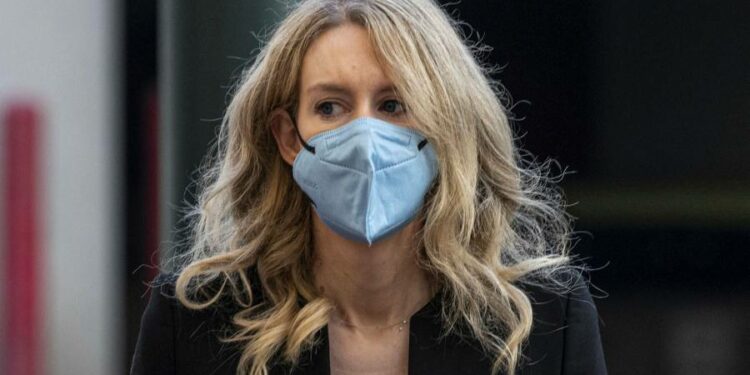Theranos founder Elizabeth Holmes has finished testifying after seven days of questions about her decision-making at the failed blood testing start-up, bringing one of Silicon Valley’s most closely watched fraud trials closer to a close.
Holmes took questions about the company’s revenue projections and media strategy on Tuesday and Wednesday as prosecutors concluded their cross-examination. She betrayed little emotion and appeared defiant battling suggestions that she misled investors about the capabilities of Theranos’s devices.
Holmes faces 11 counts of wire fraud and conspiracy to commit wire fraud, each carrying up to 20 years in prison. She had pleaded not guilty. The defence rested its case on Wednesday, and jurors are expected to begin deliberations this month following closing arguments.
During some of the most sensational testimony on Tuesday, prosecutors questioned Holmes about revenue forecasts Theranos had produced for an investor, which differed from the company’s own internal projections.
In one set that prosecutors said Theranos had presented to investor Lisa Peterson, Theranos projected it would make $990m of revenues in 2015.
However, another set of revenue projections sent to an outside valuation group showed Theranos expected $113m of revenues that year. A company accountant later lowered that forecast to $55m following a discussion with Holmes, according to an email prosecutors showed jurors.
During questioning on Tuesday led by Kevin Downey, Holmes’ attorney at Williams & Connolly, she agreed that the analyses performed for the two sets of projections were “different” and both had been presented to the Theranos board of directors. Holmes did not elaborate on the differences.
The cross-examination gave prosecutors a chance to ask factual questions of Holmes, whose emotional testimony included allegations of abuse against her former boyfriend and business partner Ramesh “Sunny” Balwani. Lawyers for Balwani have denied the accusations.
Prosecutors in criminal fraud cases must show intent from the defendant, a more difficult standard than merely proving the person made misleading statements.
At its peak, Theranos was a widely heralded start-up whose aim was to lower the cost and discomfort of routine blood testing. Investors valued the company at $9bn. But in 2015, a Wall Street Journal article questioning Theranos’s technology sent it into a tailspin, and it shut down three years later.
Holmes frequently said on Tuesday she could not remember details of crucial conversations raised by federal prosecutors. At one point, she denied telling investors that Theranos devices were being used on military medevac devices, contradicting previous testimony from the company’s backers, who suggested she had told them otherwise.
Prosecutors also brought up a 2014 article in Fortune by journalist Roger Parloff that Theranos had sent to investors as an example of positive media coverage.
Holmes admitted that some of the article’s biggest claims had not been accurate, even though she had not tried to correct the record at the time.
Among those misleading assertions, the article said Theranos did not buy analysers from third parties and offered 200 of the “most commonly ordered blood diagnostic tests, all without the need for a syringe”.
Asked whether the last statement was incorrect as of 2014, Holmes responded: “I don’t think it is now.”
Jurors had previously heard testimony that Theranos could only run a fraction of that total from a fingerstick sample.











